Excellence in Education: Cato College’s 2024 in Review
“Educators don’t like to brag on themselves.”
Whether the educators of today among our faculty or those of tomorrow like our students, this statement rings true throughout Cato College of Education. Quietly, they have moved into a role of servant leadership and tireless dedication, exemplifying how great things are happening at Charlotte.
As Professor & Dean Dr. Malcolm Butler says, “If you were to ask anyone in Cato College about the work we’re doing, they would probably tell you about a colleague, their department chair, or maybe a student – not themselves. The humility and passion for helping others grow runs deep through this collective of educators, yet what they have accomplished simply in service of that passion is astronomical.”
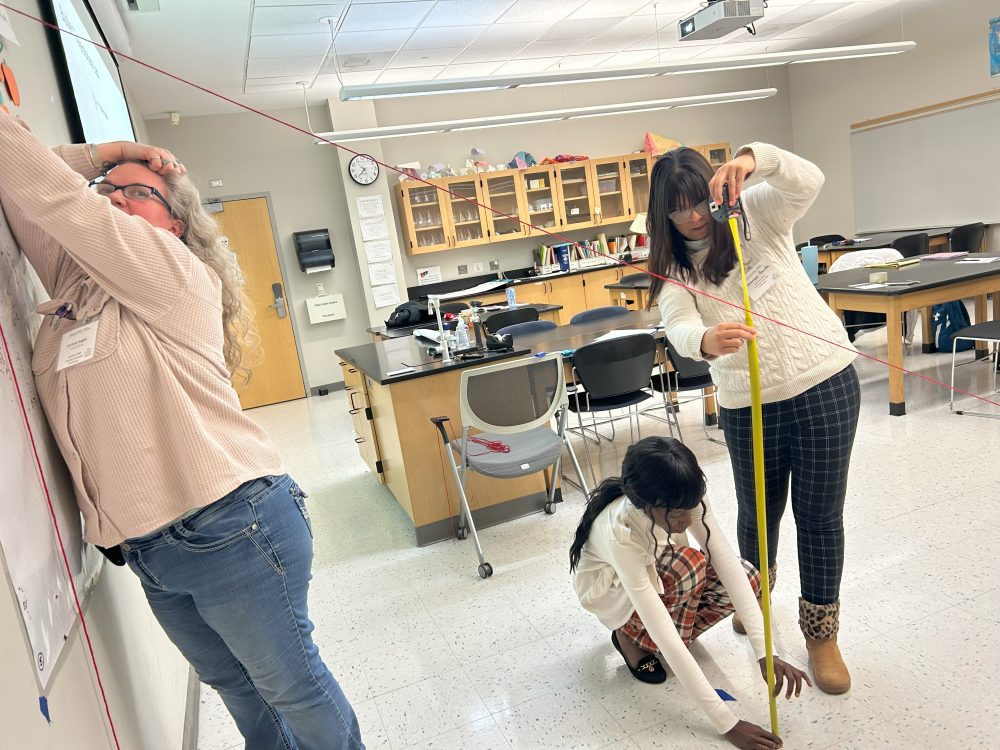
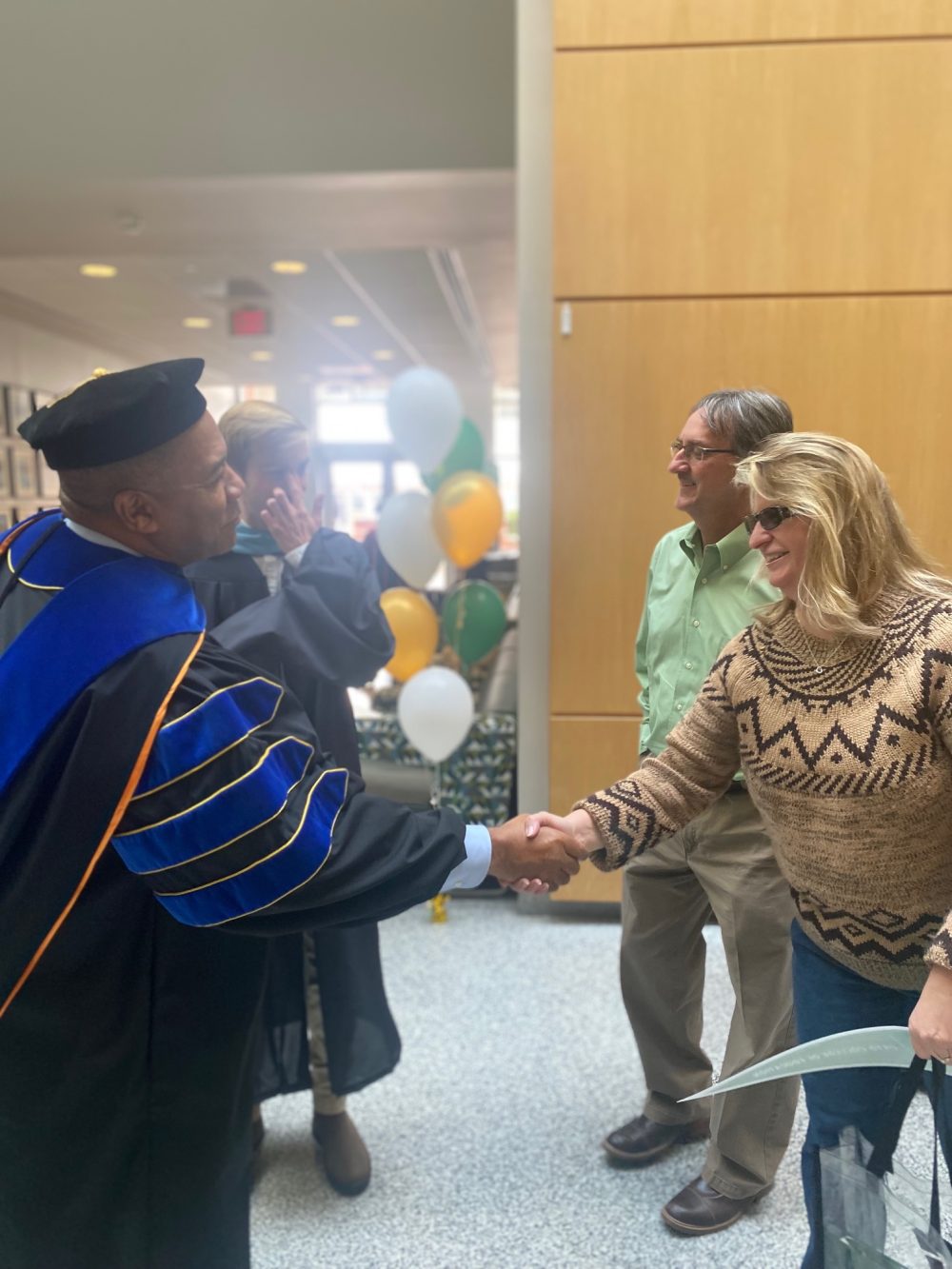
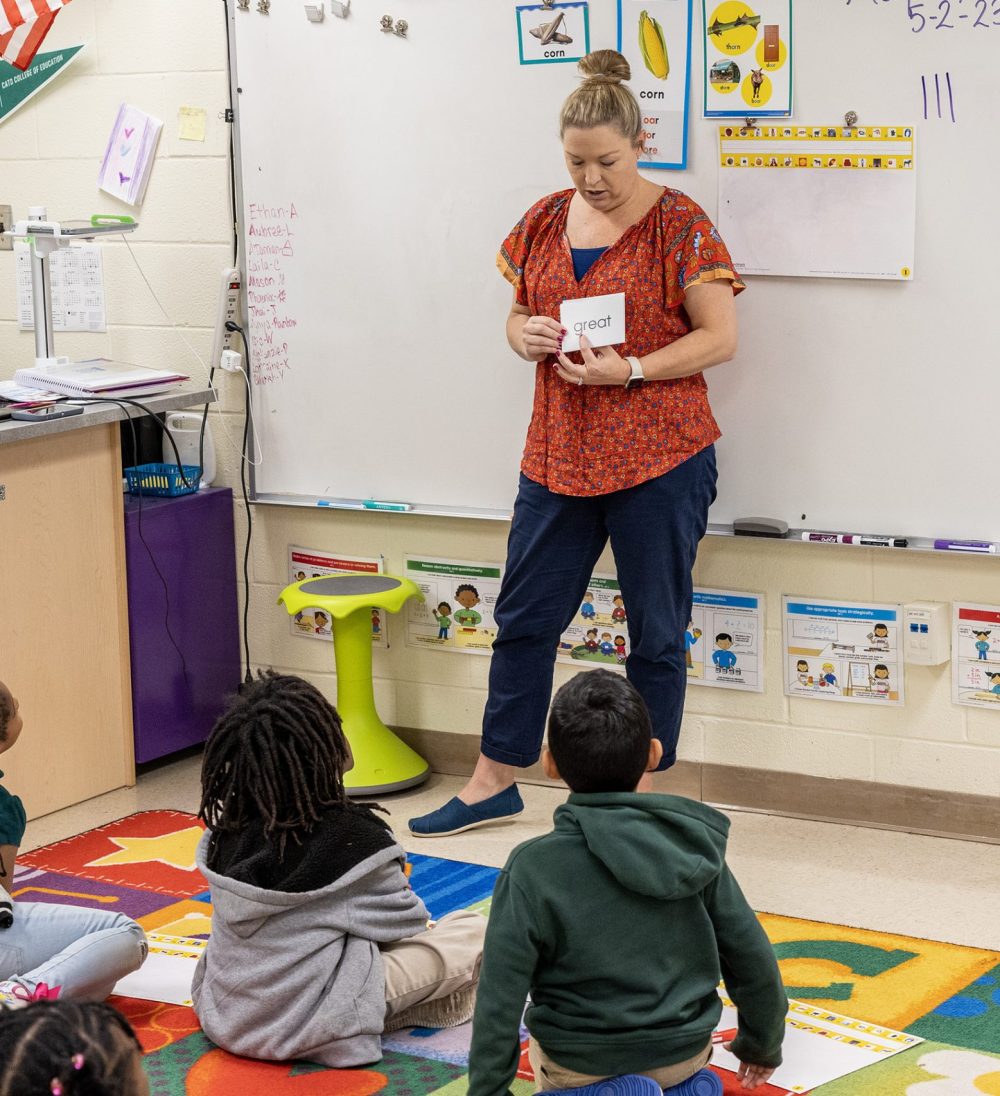
So let’s take a moment to look back on 2024 and uncover some of the incredible untold stories of our EduNiners and the faculty that guide their way – those who are transforming education one learner at a time.
Mebane Early Literacy Center
You may have heard that in 2023, Cato College received $23 million to fund the Mebane Early Literacy Center (MELC) in pursuit of improving the literacy rates of our youngest students in North Carolina.
What you may not know is how prolific MELC has been in its first full calendar year. It has provided scholarships, multiple leadership opportunities, hands-on experiences with students and families, and a sense of community to 10 Mebane Scholars. Several faculty began to use an enhanced clinical model in their courses, which has allowed scholars to spend more time in schools – a model mutually beneficial both to our scholars and the K-5 students receiving support – and ran the Summer Reading Camp at Niner University Elementary.
Two standout projects from MELC this past semester took shape quickly in reaction to the needs of the Charlotte community. Dr. Kristen Beach led a team in documenting the landscape of community-based organizations supporting literacy in Mecklenburg County. In collaboration with the Charlotte Regional Data Trust, the information was used to create an interactive county map that details literacy services provided – the who, what, where, and how many are being served. The goal is to eventually develop maps that show what the need looks like and what the support looks like, to help organizations better identify gaps in the community to be filled.
The second was in response to a local literacy nonprofit in North Carolina that shut down suddenly at the end of October. The center took action and developed a reading protocol that could be used by almost anyone interested in working with students to improve their reading fluency, whether formally trained or not. In just a few short months, the MELC Repeated Reading Protocol was developed. These projects and others will officially launch at the Mebane Early Literacy Summit on February 1.
Center Director Dr. Angela Preston beams when asked about her team’s response to community needs. “I am deeply impressed by the commitment and dedication of our faculty and staff. The development of the MELC Repeated Reading protocol was truly a team effort where everyone lent their expertise in the design, creation, and review processes. We completed this entire protocol and will launch it within 3 months from when we started planning.”
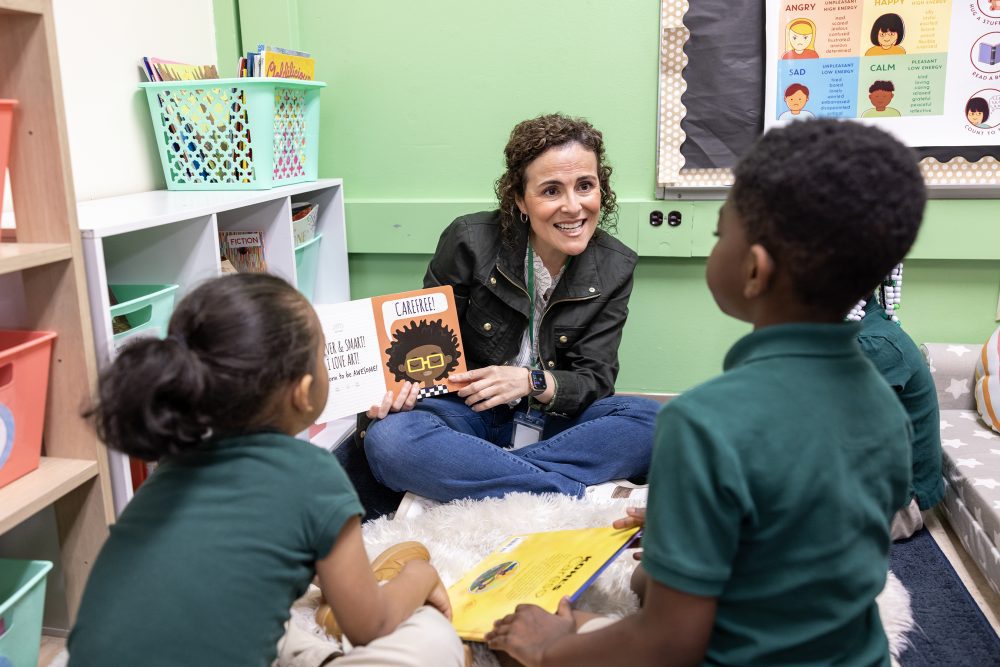
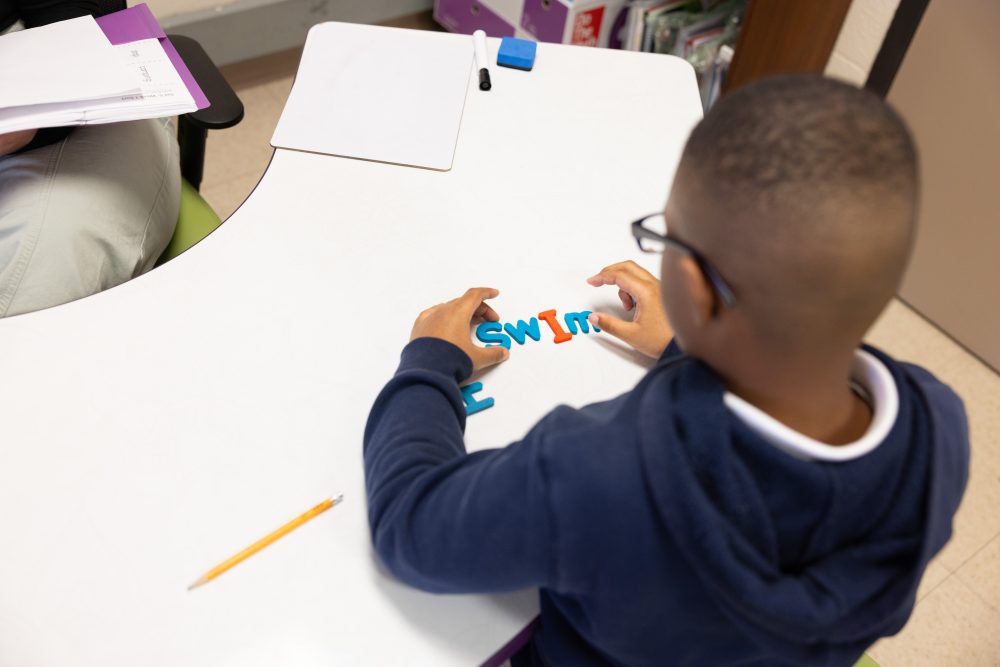
Reading & Elementary Education
Reinforcing Charlotte’s commitment to literacy education, Cato College hired Dr. Kelly Cartwright as the Spangler Distinguished Professor of Early Child Literacy. Cartwright is one of the foremost scholars in the science of reading and received the 2023 State Council of Higher Education in Virginia Outstanding Faculty Award (the highest faculty award in the state of Virginia) for her work. Her book “Executive Skills and Reading Comprehension: A Guide for Educators” has been hailed as “an essential resource for any educator interested in helping students become better readers and thinkers.”
Cartwright has thrived in her first semester at Charlotte, leading the READ (Reading, Executive function, And Development) Lab and serving as the co-coordinator for the Ph.D. concentration in Literacy Research, Policy, and Practice. But what has stood out the most to her is the way faculty here are intentional and deliberate about real-world applications of their research.
“Across all initiatives, my colleagues and I are intentional about integrating research into practice in ways that directly support students. As one example, [we created] instructional materials for a reading fluency intervention that responds directly to needs expressed by local educators for support for striving readers. These materials are the first instructional resources developed by MELC, and they illustrate well the kinds of direct research-to-practice partnership work that is the hallmark of the Cato College of Education.”
But she’s not the only award-winning faculty member in Cato’s Reading and Elementary Education department. Dr. Erik Byker and Dr. Adriana Medina are two of the last three recipients of UNC Charlotte’s prestigious Bank of America Award for Teaching Excellence, given to one longtime faculty member each year who exemplifies the university’s commitment to excellence in instruction.
Together, the two of them lead the GREET (Global-Ready Research & Equitable Education in Teaching) Center, where their global-first approach to teaching and learning prepares young educators to “become critically engaged, citizen scholars who care deeply for the world,” in Byker’s words. Their work ranges from coursework on the Civil Rights Data Collection and its role in making informed instructional decisions based on learner needs, to collection and recycling of crayons for better child-sized and sustainably-sourced art supplies.
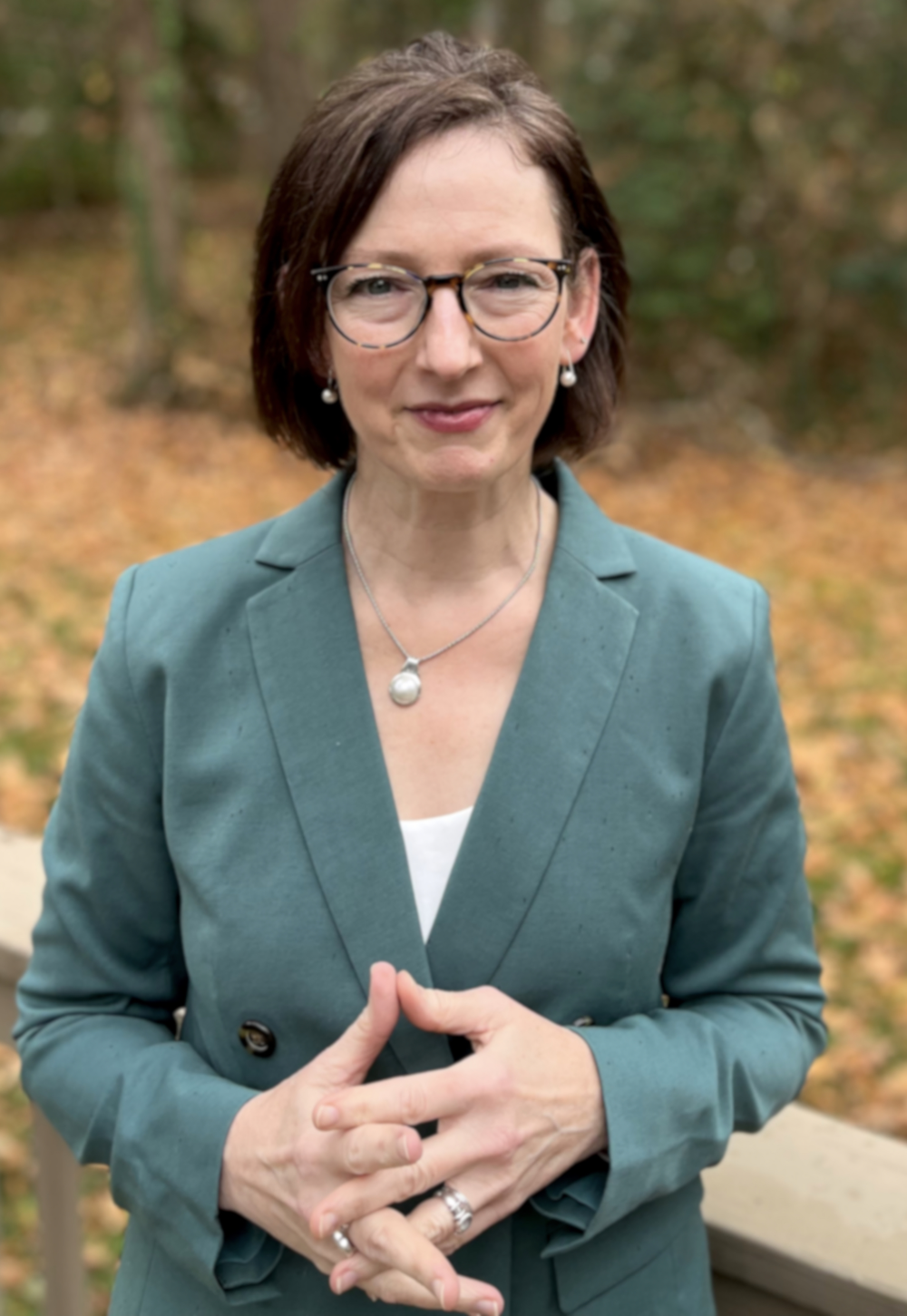
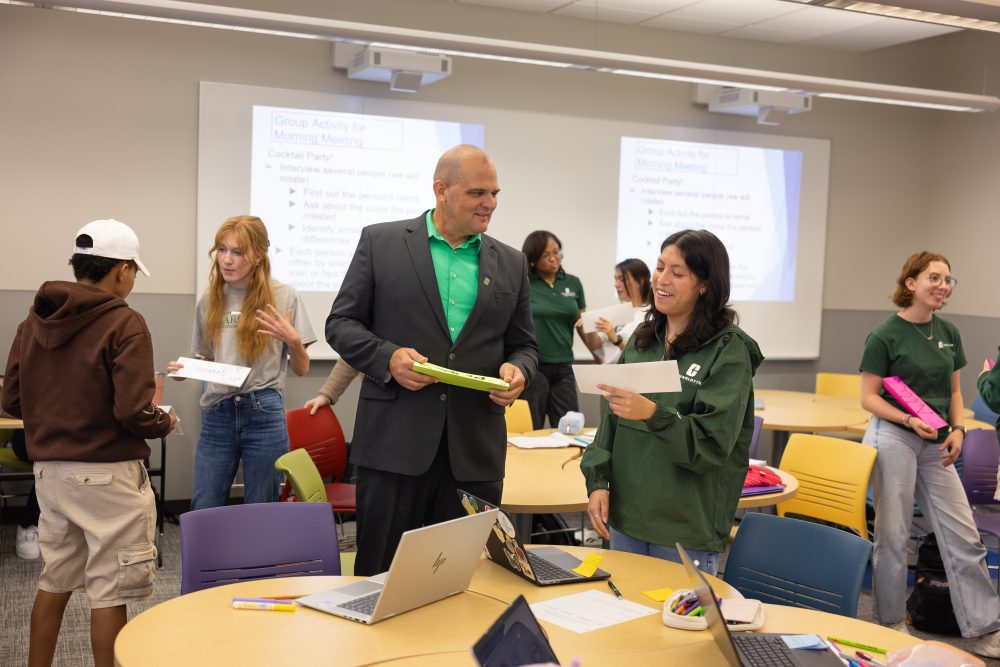
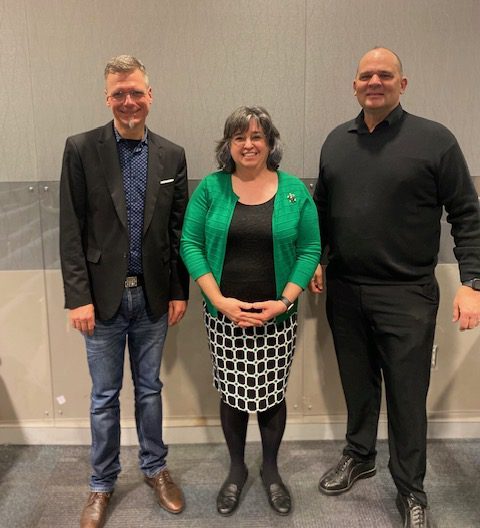
Educational Leadership
Cato faculty are also consistently recognized as leaders on the national and international level as well. Dr. Lisa Merriweather of the Educational Leadership department was recently inducted into the International Adult and Continuing Education Hall of Fame at a ceremony in Florence, Italy. Despite self-describing as a “behind-the-scenes” player, she was recognized for her “wide-ranging, interdisciplinary work [that] addresses pressing needs within adult education,” according to the IACE itself.
Merriweather said of the honor, “While it was an external validation of my life’s work by my peers, it was just one more confirmation of what my family, friends, and close colleagues validate for me every day: I am seen, I matter, and the work that I do is meaningful and makes a difference for others. Making a difference is why social justice work is needed, and I am compelled to be an active part of creating and supporting a world that is better than I found it for my children, grandchildren, nieces and nephews.”
Dr. Mark D’Amico is also working to leave the world better than he found it. Last semester, he was invited to the White House for the Classroom-to-Career Summit with the Biden Administration, which included members of the Departments of Labor, Commerce, Education, and Transportation. He presented research in partnership with Rutgers University’s Education and Employment Research Center to the Department of Education regarding the data infrastructure for noncredit college programs.
“More and more adults are considering shorter-term education options leading to non-degree credentials to advance their careers,” D’Amico says, and the data supports this – more than two-thirds of adults considering further learning prefer a non-degree option, up from just half prior to 2020. This means institutions offering those credentials, and the states that fund them, need more robust data on these programs to better evaluate the use of their money, their quality, and their outcomes. D’Amico and his co-investigators have built a blueprint for states without this kind of data infrastructure to follow to better support their adult learners and the institutions that teach them.
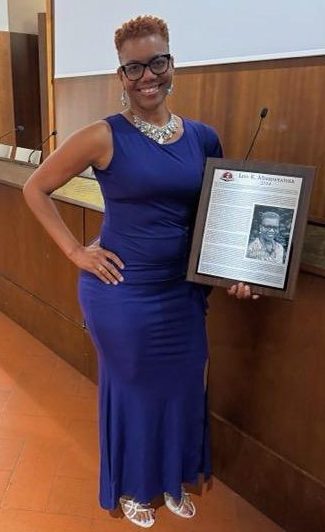
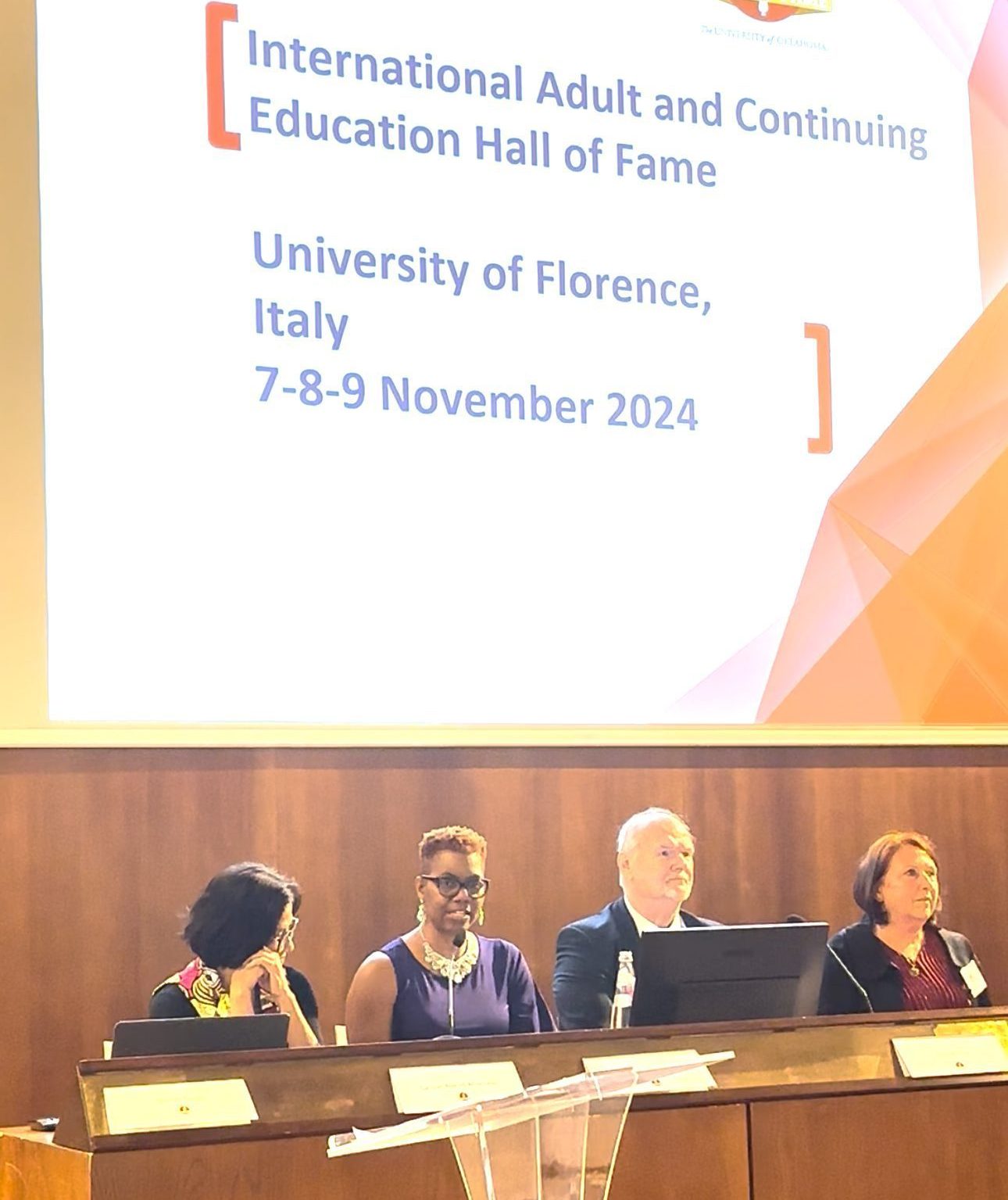
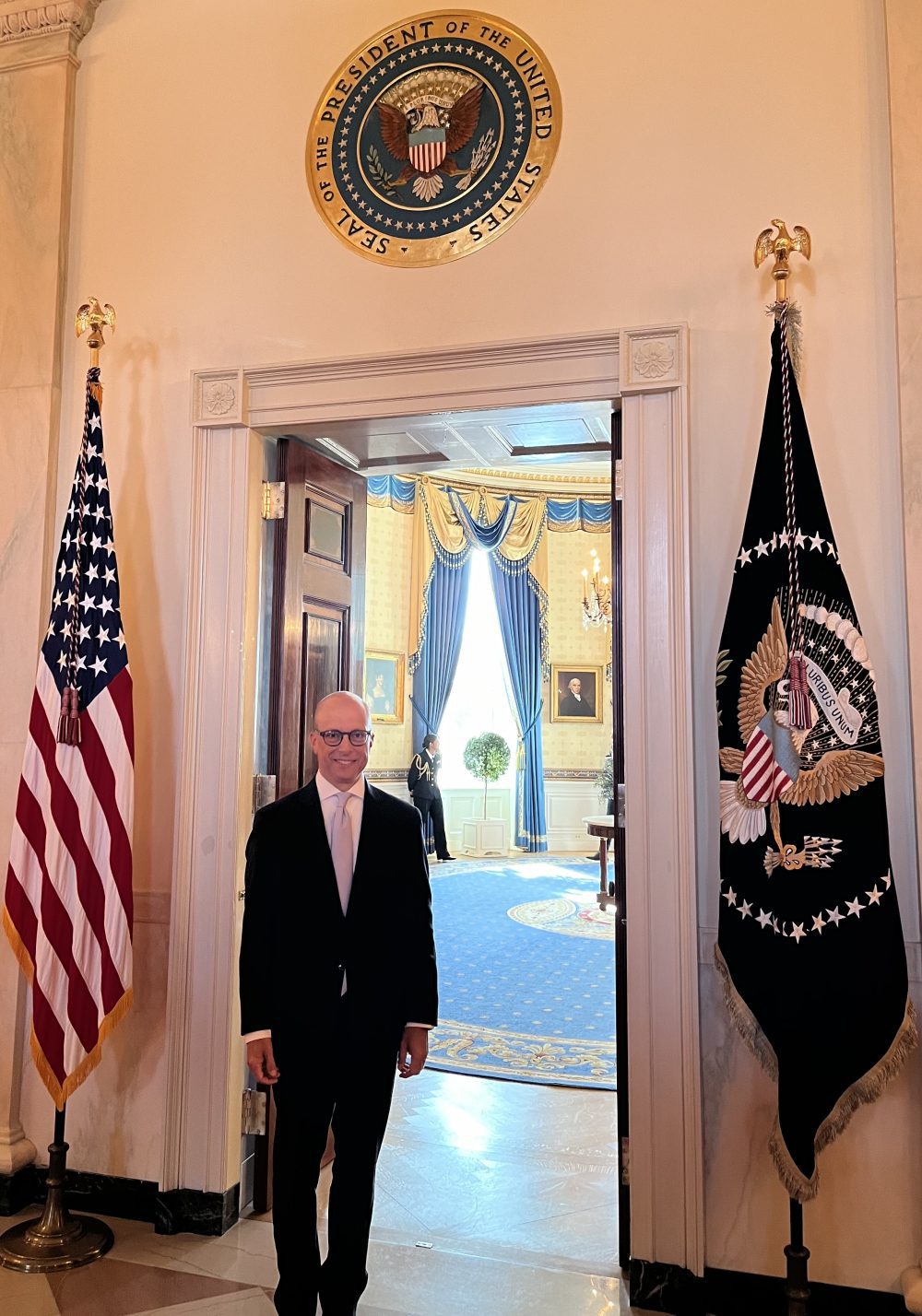
Counseling
With the attention of the international community and the White House, Cato College is clearly a rising star in the world of education – not just in teaching or administration, but also in counseling programs. Application numbers have been so high, the department has opened two simultaneous searches for new faculty, just to keep up with student demand.
Our existing faculty have already set the bar high. Dr. Taryne Mingo was awarded part of a N.C. Department of Public Instruction (NCDPI) grant that will fund recruitment and training of school counselors and social workers to improve mental health in North Carolina schools. This support will allow Mingo to both better recruit students and better support current school counseling students through tuition assistance, internship stipends, and professional development training.
Dr. Clare Merlin-Knoblich was also awarded a prestigious Gambrell Fellowship, a faculty fellowship at UNC Charlotte’s Urban Institute funded by the Gambrell Foundation. The fellowship funds research related to economic mobility and quality of life for people in the Charlotte area. Merlin-Knoblich’s work seeks to improve K-12 students’ sense of belonging, mental health, and education through expansion of the School Counselor Equity Fellowship, a yearlong program in Charlotte-Mecklenburg Schools (CMS) in which counselors learn about, discuss, and implement school counseling social justice practices.
“A primary focus in my teaching is that school counselors should be voices for social justice in their schools.” Merlin-Knoblich says of her work. “Some of them have always been advocates in their school buildings… But others have never ventured into social justice work, and my nudges have led to them implementing the most extraordinary projects to help K-12 students. They often have everything inside of them they need to do such beautiful, impactful work, and my gentle push can launch them into it with the most meaningful results for their schools and students.”
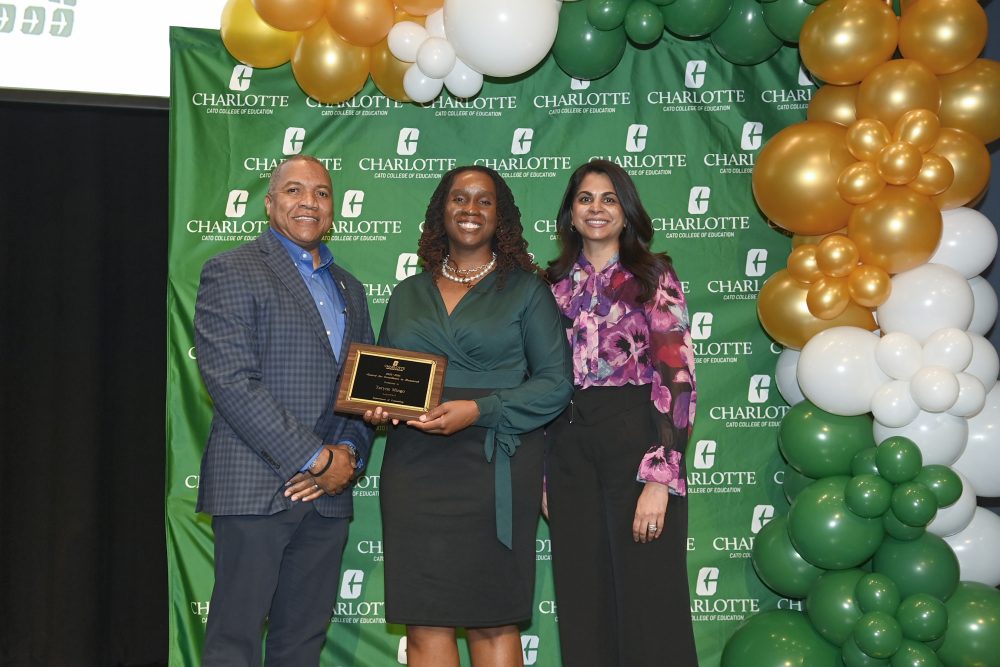
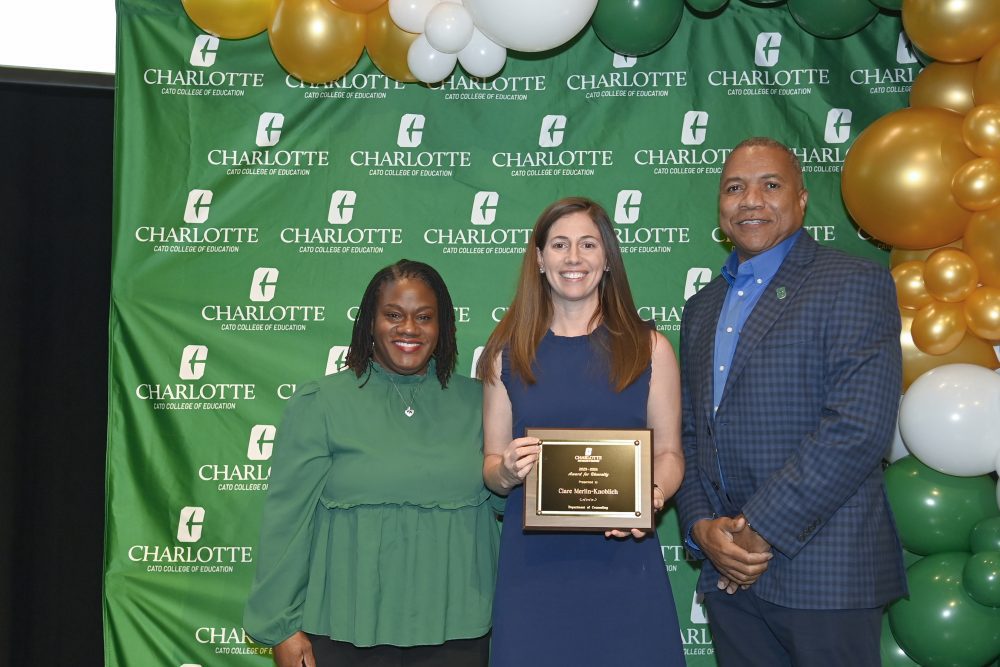
Center for STEM Education
From counseling education to STEM education, Charlotte has leaders in all areas. From our Center for STEM Education (CSTEM), Dr. Victor Mack was named a Top 10 STEM Director by Education Technology Insights. As the Director of our STEM Pre-College Program, Mack has impacted the lives of hundreds of young people, many of whom have grown into working professionals in the field themselves.
The Pre-College Program is responsible for several initiatives within CSTEM, including Saturday Academy, Virtual Thursdays, and our Summer Scholars program. The former two have featured speakers from Eli Lilly, Corning, WSP Transportation, Blythe Construction, and more, and have had sessions facilitated by several campus-based and community-based student organizations. Summer Scholars was a series of week-long programs in June and July with hands-on experiences and demonstrations on coding, earth science, chemistry, and biology, with different tracks dedicated to each grade level. This past summer, we had 163 students participate in the five-week program.
“With such an emphasis on teaching and research within the traditional college setting, UNC Charlotte’s continued emphasis on service with its community partners continues to propel the university to new heights. These efforts and initiatives promote inclusion within the college community at a time [when] such efforts are not prioritized or valued. As we continue to seek 21st century solutions to a myriad of challenges in STEM, we must continue to recruit diverse populations to solve many of the pressing issues we face, such as climate change, ethical concerns surrounding emerging technologies, healthcare, and world hunger, to name a few.”
He has certainly achieved that – he has Pre-College Program alumni who now work at Stanford, Duke, and Yale doing similar needle-moving work, following his example. On a larger scale, his work has exposed non-traditional students and candidates to STEM and the university setting at UNC Charlotte that would otherwise have never had the opportunity, like students from Title I schools and other disadvantaged communities, who have competed against students from more privileged backgrounds on some of the state’s biggest stages and won.
2024 also brought the UNC Charlotte STEAM Innovation Expo back to campus after a few years of virtual experiences due to the pandemic. Held in cooperation with Charlotte KidsFest, 9,400 attendees – students, families, and community members – experienced hands-on STEM activities and research. They were also able to attend science talks, tour some of our labs, and see science-based performances from exhibitors.
Special Education & Child Development
Cato’s acclaimed faculty makes it a perfect host for industry events like the STEAM Expo, or the North Carolina Council for Exceptional Children’s ninth annual Inclusion Summit. Dr. Holly Johnson has worked hard over the last year to bring the summit to Cato for the first time, collaborating with stakeholders and organizations across the state to offer a broad range of valuable experiences for students, faculty, practicing professionals, families, and community partners.
One piece she’s particularly passionate about is making the Inclusion Summit actually more inclusive, opening up proposal topics to more than just special education, but including gifted education, early childhood, students with disabilities, ESL, and transition topics as well. She wants to have useful, actionable research for everyone who might attend.
It’s this real-world application of principle that led our Special Education programs to be ranked No. 16 in U.S. News and World Report in 2024 – the best in the state of North Carolina.
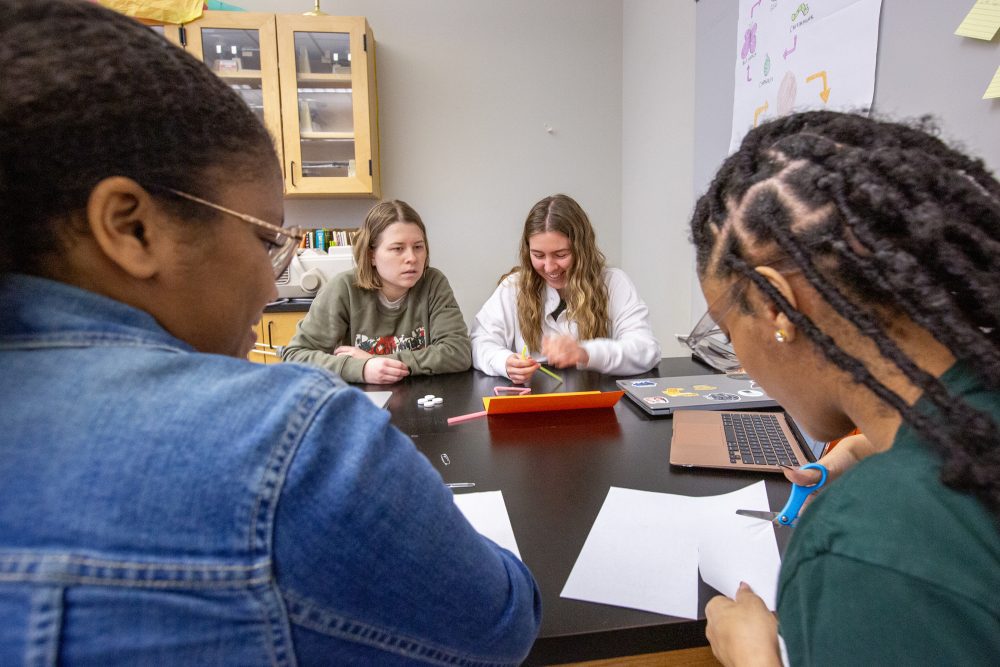
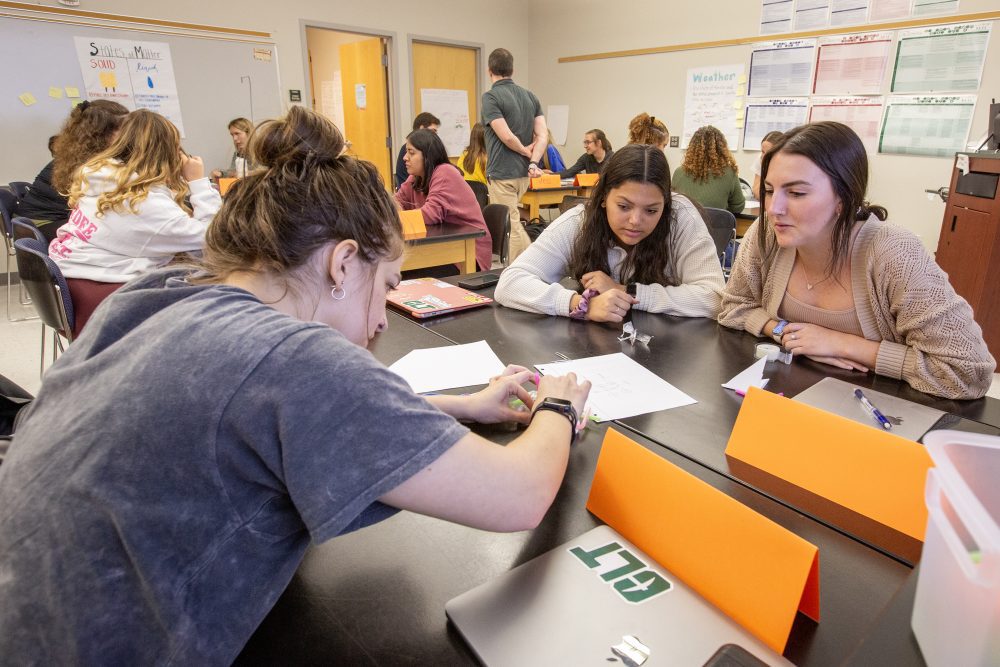
Student Success
Cato College is also among the best in the state (and the nation) in several other measurements as well.
- No. 2 producer of North Carolina teachers
- At least one alum working in schools in 91 of the state’s 100 counties
- 96% edTPA pass rate – the exam which determines if a student passes the student-teaching portion of their licensure requirements – compared to a national average of 87.5%
The 2024 Student Teacher of the Year and Clinical Educator of the Year illustrate well the effects of education training at Cato College. Bailey Wilcox and Vanessa Halling, respectively, are a classroom pair at Mallard Creek High School in CMS, teaching English IV. Halling set the tone immediately upon having Wilcox assigned to her, meeting with her before the semester even began to discuss her classroom principles – inclusion, collaboration, and high standards for instruction. Above all, she wanted Wilcox to feel like the classroom was her own.
This gave Wilcox a strong foundation to build upon, and according to the school principal, “students often vocalized how this relationship between a veteran and emerging educator directly benefited their academic success, and led them to do the little things right in class.”
Wilcox’s University Supervisor, Kate Gilbert, recounted a particular anecdote from one of her updates: “After building a genuine connection with a student who had previously expressed a strong dislike for reading, she thoughtfully recommended a book she believed would resonate with him. The next day, the student approached her before lunch and asked if he could stay in her room to have a quiet place to read… Her thoughtful recommendation and willingness to create a supportive environment unlocked a newfound love of reading for this student, inspiring him to see himself as a reader for the first time.”
This redirection of required curriculum into lessons that connect personally with each individual student is a direct reflection of the leading education practices Wilcox learned in her classes at Cato, as well as the inclusive environment Halling fostered for her to thrive in.

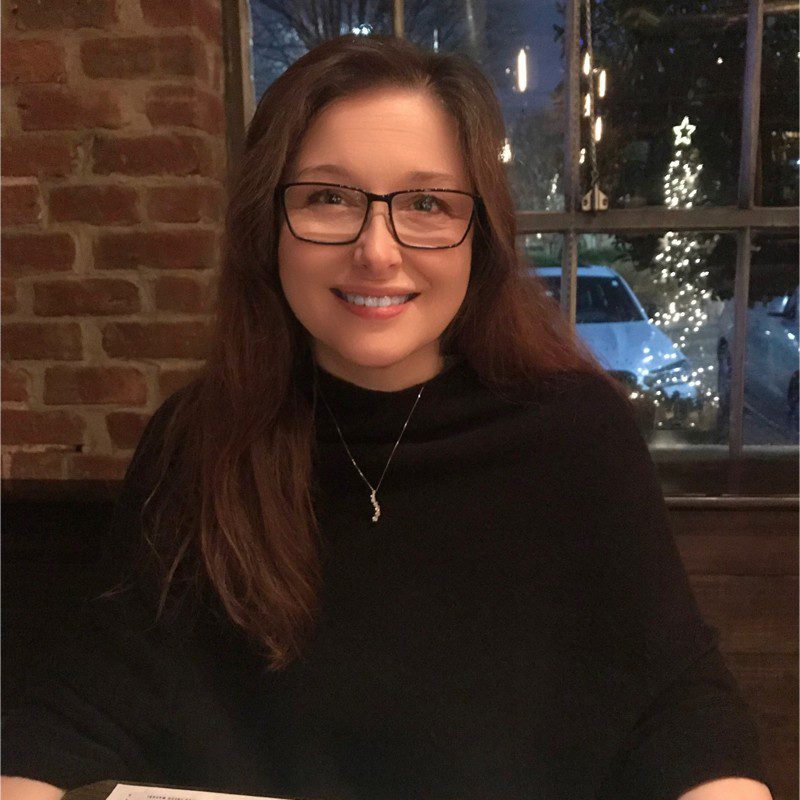
Community Support
One of the reasons our students have such high success rates is because we provide the tools for them to overcome many of the barriers they often face to achieving. Whether it be tuition, time, or physical access standing in the way, Cato College has developed several programs that overcome these challenges and better enable students to become educators.
One of these programs is the Teacher Quality Partnership (TQP), of which Cato College has two – one with CMS and one with Union and Gaston Counties. In exchange for a promise to teach in a high-need position in the county they’re placed into, program participants receive tuition and other select benefits depending on the partnership to complete an 18-month program at Charlotte that earns them both their teaching licensure and a Masters degree.
Program alumna Zaki Baker says that TQP “isn’t just an educational pathway, but a beacon of hope for communities and students in high-need areas… This program empowered me to help address a need in our educational system.” The CMS TQP is now recruiting for its third cohort, while the Union/Gaston TQP was established new in 2024 and is recruiting for its first.
Charlotte has also partnered with several other institutions, the Department of Education’s Office of Special Education Programs, and the Rehabilitation Services Administration to establish the National Technical Assistance Center: The Collaborative (NTACT:C). Helmed by Dr. Catherine Fowler, NTACT:C provides information, tools, and support to assist state agencies and community partners in delivering effective services and instruction for secondary students and out-of-school youth with disabilities.
Fowler has the largest amount of active funding of any faculty member at UNC Charlotte at a whopping $20.4 million, funding NTACT:C to research ways to bridge the the gap between what researchers have discovered will work versus the care and support that young students are receiving – and help state agencies implement such measures. Closing this gap could give students and youth with disabilities the support and skills they need to succeed in postsecondary education, employment, and beyond.
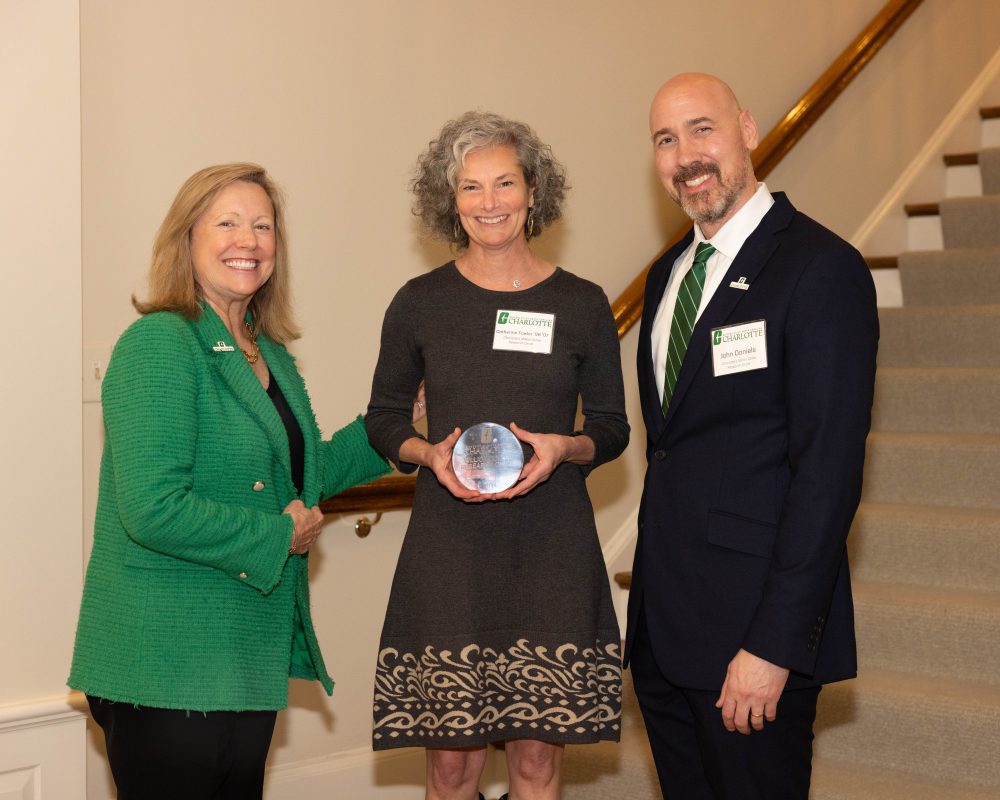
Middle, Secondary, and K-12 Education
While all of these things contribute to what makes Cato College exceptional, there is truly no more “Charlotte” experience within our college than the Urban Education Collaborative, headed by Dr. Chance Lewis at The Dubois Center at UNC Charlotte Center City. The Carol Grotnes Belk Distinguished Professor and Endowed Chair of Urban Education, Lewis has built the Collaborative into a force for change across the field of urban education the world over. Among the many academic and community programs the Collaborative owns, the biannual International Conference on Urban Education (ICUE) is perhaps the largest, which Lewis touts as a solutions-oriented gathering. They intentionally design panels with both researchers and practitioners so that both sides of an issue can be in conversation with one another, learn from each other, and develop real, implementable solutions together that attendees can take away and bring into their own work.
In addition to panel presentations and networking opportunities that one might expect at a typical academic conference, they also have a local impact initiative each year, where professional, undergraduate, and high school student attendees take on a project that will make a difference. ICUE 2024 was held in Cancún, not because it’s a tourist destination that would attract more attendees, but because they went to una escuela primaria – a local elementary school. There, they built a library and delivered nearly 500 books, appropriate for all grade levels K-5 in both English and Spanish, and the student attendees spent time reading, crafting, and playing with the young elementary students.
Conclusion
Dean Butler reflected on 2024 in December and offered some thoughts for what’s to come. “The past few months have given us numerous opportunities to exhibit the resilience, agility, and grace of our Cato College. Natural disasters and personal challenges impacted our work in ways unimaginable, yet we have stayed the course on being a leader in educational research, teaching, and service through excellence and engagement.”
“In 2025, there’s going to be a lot going on across society and the world, but my simple message to our college is this – let’s take care of ourselves and take care of each other. We are privileged to be in a space where we have the opportunity to improve the trajectory of people’s lives every single day with the work we do. Let’s keep doing that great work.”